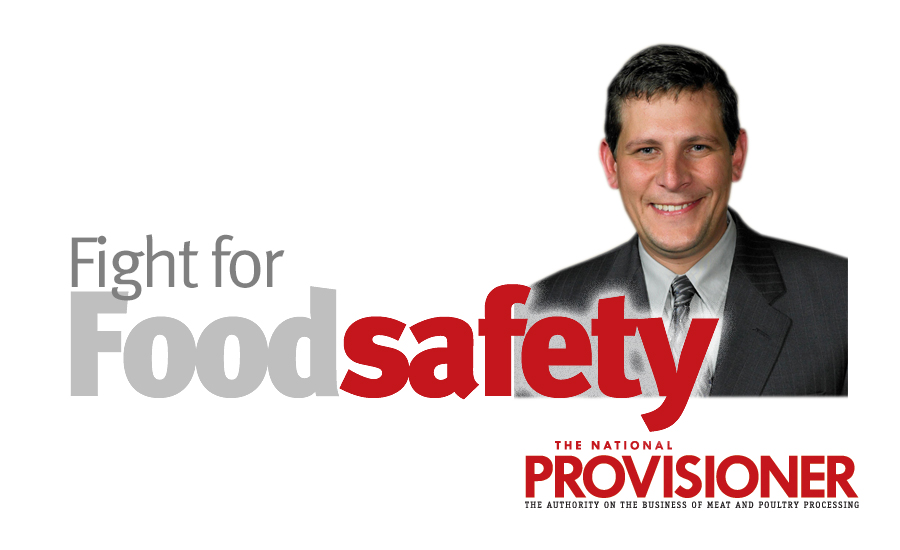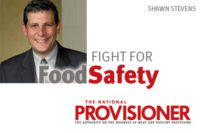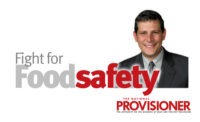Fight for Food Safety
Targeting troubled establishments

The way FSIS conducts Food Safety Assessments (FSAs) is about to change. From the perspective of industry, the news can be both good and bad. While FSIS is streamlining the way in which FSAs are performed in an effort to substantially shorten the overall process, the agency announced it will begin targeting “at risk” establishments to determine which companies will actually receive FSAs. During the assessment which follows, Enforcement, Investigations and Analysis Officers (EIAOs) will be encouraged to focus on problem areas within the facility, and address more directly potential risk.
So, how will FSIS select which establishments will receive FSAs? Each month, FSIS headquarters will provide each district with a list of establishments to be assessed. The monthly list will also be prioritized by risk. The bad news for industry is, if your company makes the list, FSIS may have some significant concerns with your facility.
Indeed, the monthly list will be created by FSIS using a Public Health Risk Evaluation (PHRE), which will consider a number of risk factors. The agency will consider, among other things, whether the establishment has produced any product that was linked to human illness, whether its products were associated with any positive STEC (or other pathogenic) findings in the previous 120 days, whether the establishment initiated any recalls during the periods in question, or whether it has persistent noncompliance issues. Although the establishment will not be permitted to review the PHRE, FSIS will summarize its findings during the entrance interview, and then use those findings to direct the scope and nature of the FSA. FSIS may also perform microbiological sampling during the FSA as well.
The good news for industry is that, once the FSA is started, the process should go quickly. In the past, FSIS would typically take between two to 12 weeks to complete an FSA. Indeed, on average, EIAOs would generally spend about 38 days in an establishment conducting their assessment. Now, the agency is claiming that all FSAs should be completed within five to seven days. In addition to streamlining the process considerably, FSIS will also be focusing its assessment on the specific areas of the operation that are of the greatest concern. Once the assessment is complete, the EIAO will issue its recommendations which could include: (1) no further action; (2) the issuance of NRs; (3) the issuance of a notice of intended enforcement; or (4) the issuance of a suspension.
Ultimately, if your company is doing everything right, you may not have to worry about weathering another FSA for a very long time. If, however, you are having any ongoing regulatory or food-safety struggles, be prepared for the agency to come knocking on your door sometime soon. NP
Looking for a reprint of this article?
From high-res PDFs to custom plaques, order your copy today!






